Do You Need ‘Umbrella’ Business Liability Insurance?
As year-end activity ramps up, businesses often see more foot traffic, events, and public interaction, raising the chances of liability claims. While standard business insurance covers a lot, it may not be enough during this busy stretch. Umbrella coverage adds extra protection when your risks and exposure are at their peak. Learn how.
What Is Umbrella Business Liability Insurance?
Umbrella insurance doesn’t replace your existing liability policy. Instead, it extends it. Think of it as backup coverage that kicks in after your general liability, auto liability, or employer’s liability coverage has been exhausted.
Here’s a simple example:
Your general liability policy covers up to $1 million. A customer sues you for $1.5 million after slipping at a holiday event you hosted, and your general liability policy pays the $1 million. Your umbrella policy pays the remaining $500,000, saving you from having to pay it out of pocket.
This extended protection isn’t just for lawsuits. It can cover things like legal defense costs, settlements, and judgments that exceed your base coverage. For businesses entering a season filled with events, promotions, and increased interactions, this additional safety net can be crucial.
Why the End of the Year Brings More Liability Risk
The fourth quarter is a busy and often chaotic time for many industries. And with that activity comes added exposure—some of it predictable, and some not.
Here are a few ways your business liability risks can spike before year-end:
1. Holiday Events and Seasonal Promotions
Are you hosting a customer appreciation party or running a holiday pop-up shop? Events create more opportunities for accidents, especially when alcohol, crowds, or unfamiliar environments are involved.
Even if you’re not the organizer, participating in community or vendor-hosted events can introduce third-party liability. Umbrella business liability insurance ensures you’re not left vulnerable if your general policy limits are exceeded due to an unexpected incident.
2. Increased Foot Traffic
Retailers, restaurants, and service providers often see a surge in customers during the holidays. More foot traffic means a greater chance of accidents, from slip-and-falls to parking lot fender benders.
If someone is injured on your property and sues for damages exceeding your base liability coverage, umbrella insurance covers the gap, protecting your business’s financial stability.
3. Seasonal Staffing
Bringing on temporary workers? While this helps meet holiday demand, it also adds risk. Seasonal employees may not be fully trained or familiar with company safety procedures, which can lead to more workplace incidents.
If a seasonal worker is involved in a liability event, especially one involving a customer, your employer’s liability coverage might fall short. That’s where umbrella business liability insurance can provide essential support.
4. Year-End Deadlines
Contractors, manufacturers, and B2B service providers often face tight timelines in Q4. The rush to complete projects can lead to safety shortcuts, miscommunication, or oversights that result in legal claims.
In high-stakes industries, a single claim can easily exceed standard policy limits. Umbrella insurance helps ensure your business stays protected even when the unexpected happens under pressure.
What Umbrella Insurance Typically Covers
While every policy is a bit different, umbrella business liability insurance generally extends to the following:
- General Liability: This insurance type extends coverage for third-party bodily injury and property damage.
- Commercial Auto Liability: Vehicle coverage adds protection for accidents involving company vehicles.
- Employer’s Liability: This supplements coverage for employee-related claims not covered by workers’ comp.
- Legal Fees: Under this coverage type, business owners receive assistance paying for legal defense costs when underlying coverage is exhausted.
It’s important to note that umbrella coverage does not apply to every type of claim. It typically won’t cover:
- Damage to your own property
- Professional errors or omissions (you’d need professional liability insurance for that)
- Intentional misconduct or criminal activity
- Cyberattacks or data breaches (separate cyber insurance is recommended)
This is why it’s essential to pair umbrella coverage with a comprehensive risk review. The goal is not to duplicate coverage, but to build a smart safety net around the liabilities you already face.
If you’re considering extra liability protection through an umbrella policy, it’s also a good time to revisit what you think you know about coverage. Many business owners base decisions on insurance myths that can leave them exposed.
Signs You Might Need Umbrella Coverage Before the Year Ends
Not every business requires umbrella insurance, but here are some signs it’s worth considering, especially as the holiday season ramps up:
- You’re hosting public events or parties.
- You’ve added temporary workers to your team.
- You’re expecting a seasonal increase in customer volume.
- Your current liability limits haven’t been reviewed recently.
- You’re finalizing large contracts or installations before year-end.
- You operate in industries like construction, hospitality, or retail, where claims tend to spike during fall and winter.
If any of these apply, it’s time to have a conversation about expanding your business liability insurance.
How to Evaluate Your Current Coverage
Before adding an umbrella policy, it’s smart to assess where you currently stand. Here’s how to get started:
1. Review Your Existing Liability Policies
Check the limits of your general liability, auto, and employer’s liability policies. If your coverage is close to industry minimums (e.g., $1 million per occurrence), even a modest claim could exceed your protection.
2. Consider Your Assets
If your business owns buildings, vehicles, expensive equipment, or large inventory, those assets could be targeted in a lawsuit. Umbrella coverage helps preserve them by shielding you from large settlements or judgments.
3. Think About Public Exposure
Businesses that interact with the public are inherently more vulnerable to liability claims. The more people you serve, employ, or contract with, the greater your potential liability. Don’t let a single accident unravel years of growth.
What Does Umbrella Coverage Cost?
One of the biggest advantages of umbrella business liability insurance is its affordability compared to the amount of coverage it offers.
Premiums vary based on:
- Business size and industry
- Number of employees
- Existing coverage limits
- Annual revenue
- Claims history
But generally, $1 million in umbrella coverage can cost as little as $500 to $1,500 per year, which is a small investment considering the potential financial fallout of an uncovered claim.
Consider a Small Policy for Big Protection
The end of the year brings more than just holiday cheer. It’s also a time when liability risks surge, often in ways business owners don’t anticipate until it’s too late. Reviewing your business liability insurance and adding umbrella coverage if needed ensures that one lawsuit, accident, or unexpected event doesn’t threaten everything you’ve built.
You don’t have to navigate this decision alone. A trusted insurance partner can walk you through your exposure, help you calculate adequate limits, and build a policy that reflects your seasonal needs and year-round goals.
Stay Ahead of Holiday Risk With NEC Insurance
Whether you’re hosting an event, staffing up for Q4, or wrapping up major contracts, umbrella business liability insurance can help you finish the year protected. Contact NEC Insurance today to review your liability limits and explore smart coverage options that match your risk.
Share This Post
About Us
NEC Insurance supports Missourians with high-quality coverage for businesses and individuals. We apply over 45 years of experience to help you navigate the market and deliver the policies you deserve.











